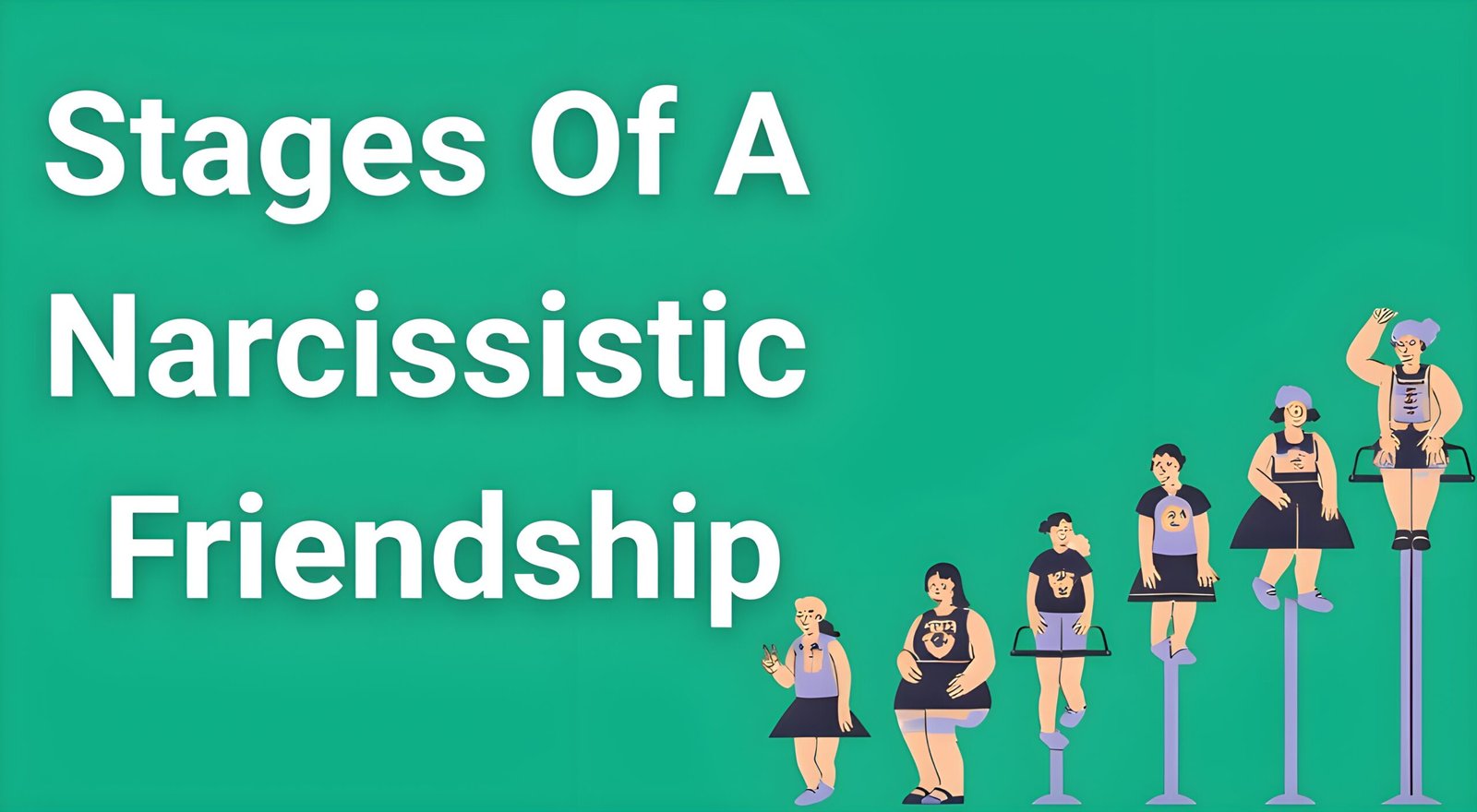That sick feeling in your stomach when you wake up each morning isn’t normal. The constant second-guessing of your own memories and experiences isn’t your imagination. If you’ve been searching “10 signs of a narcissistic husband” in the middle of the night, desperately seeking validation that what you’re experiencing is real, you’re not alone—and more importantly, you’re not crazy.
- Understanding Narcissistic Personality in Marriage
- The 10 Signs of a Narcissistic Husband
- The Impact on Your Mental Health and Well-being
- When Professional Analysis Can Provide Clarity
- Breaking Free From Trauma Bonds
- Protecting Yourself While You Can’t Leave
- Creating Your Safety and Exit Plan
- The Path to Healing and Recovery
- Building a Support Network
- Moving Forward: Life After Narcissistic Abuse
- Frequently Asked Questions
- Conclusion
Living with a narcissistic husband creates a unique form of psychological torment that can make you question your own sanity. The subtle manipulations, the gaslighting, and the emotional rollercoaster can leave you feeling confused, isolated, and wondering if you’re the problem. But recognizing these patterns is the first step toward reclaiming your reality and protecting your mental health.
Understanding Narcissistic Personality in Marriage
Before diving into the specific signs, it’s essential to understand what narcissistic behavior looks like in the context of marriage. Narcissistic Personality Disorder (NPD) affects approximately 6% of the population, with men being diagnosed more frequently than women. However, many narcissistic individuals never receive a formal diagnosis, leaving their spouses to navigate the relationship without understanding what they’re truly dealing with.
A narcissistic husband doesn’t just display occasional selfish behavior—he exhibits a consistent pattern of self-centeredness, lack of empathy, and manipulative tactics that can destroy his partner’s sense of self-worth and reality. These behaviors often intensify after marriage, when the narcissist feels more secure in the relationship and believes his partner is less likely to leave.
The 10 Signs of a Narcissistic Husband
1. He Gaslights You Constantly
Gaslighting is perhaps the most damaging behavior exhibited by a narcissistic husband. This psychological manipulation technique involves making you question your own memories, perceptions, and sanity. Your husband might deny conversations that clearly happened, claim you’re “too sensitive” when you express hurt feelings, or insist that events occurred differently than you remember.
For example, he might promise to attend your sister’s birthday party, then later deny ever agreeing to go, making you feel like you’re losing your mind. This constant erosion of your trust in your own perceptions is designed to make you dependent on his version of reality.
The insidious nature of gaslighting means it often escalates gradually. What starts as occasional “misremembering” evolves into systematic reality distortion that leaves you questioning everything you thought you knew about yourself and your relationship.
2. Everything Is Always Your Fault
A narcissistic husband has an extraordinary ability to deflect responsibility and blame others for everything that goes wrong in his life. Whether it’s his bad mood, work problems, financial issues, or relationship conflicts, somehow you’re always the culprit.
He might say things like “If you hadn’t stressed me out this morning, I wouldn’t have been short with my boss” or “Your negativity is why nothing good happens to us.” This blame-shifting serves two purposes: it protects his fragile ego from any criticism and makes you feel responsible for his emotional well-being.
Over time, this constant blame erodes your self-confidence and creates a dynamic where you’re always walking on eggshells, trying to prevent his next outburst or disappointment.
3. He Isolates You From Friends and Family
Narcissistic husbands are master manipulators when it comes to isolation. Rather than forbidding you from seeing loved ones outright, they use subtle tactics to gradually separate you from your support network. He might complain that your friends are “toxic” or “don’t understand” your relationship. He could create conflicts or emergencies that conveniently occur when you have plans with others.
Sometimes the isolation is more direct—criticizing your family members, refusing to attend gatherings, or making you choose between him and your relationships. The goal is to make you emotionally dependent on him while removing potential sources of objective feedback about your relationship.
This isolation serves a strategic purpose. When you’re cut off from people who might validate your experiences or point out concerning behaviors, you become more susceptible to his manipulation and less likely to seek help or leave the relationship.
4. He Shows Extreme Jealousy and Possessiveness
While some jealousy in relationships can be normal, a narcissistic husband takes it to pathological extremes. He might become suspicious of innocent interactions with coworkers, accusatory about harmless conversations with male friends, or even jealous of the attention you give to your children or family members.
This jealousy often manifests as controlling behavior—checking your phone, demanding to know where you’ve been, or insisting on accompanying you to social events. He might also use jealousy as a weapon, flirting with other women in front of you or bringing up his exes to make you feel insecure and fight for his attention.
The underlying issue isn’t love or protectiveness—it’s control. He views you as his possession rather than an independent person with the right to have relationships and experiences outside of your marriage.
5. His Public Persona Contradicts His Private Behavior
One of the most confusing aspects of being married to a narcissist is the stark difference between how he treats you privately versus how he behaves in public. Your husband might be charming, funny, and attentive when others are around, but cold, critical, and dismissive when you’re alone together.
This Jekyll-and-Hyde behavior serves multiple purposes. It maintains his public image as a great husband, making it difficult for you to seek support (who would believe that such a “wonderful” man could be abusive?), and it keeps you hoping that the public version of him is his “real” self.
Friends and family might constantly praise your husband, telling you how “lucky” you are, which only adds to your confusion and self-doubt. You begin to wonder if you’re imagining the private cruelty or if you somehow deserve the different treatment.
6. He Uses Silent Treatment as Punishment
The silent treatment is a form of emotional abuse that narcissistic husbands use to maintain control and punish perceived slights. Rather than engaging in healthy communication about problems, he’ll simply stop talking to you for hours, days, or even weeks.
This behavior is particularly cruel because it triggers your attachment system and creates anxiety about the relationship’s stability. You might find yourself desperately trying to figure out what you did wrong and how to win back his attention and affection.
The silent treatment is also a power play—it positions him as the one who decides when communication resumes and on what terms. He’s training you to avoid any behavior that might result in this punishment, effectively controlling your actions through the fear of abandonment.
7. He Lacks Empathy for Your Feelings
Perhaps one of the most painful aspects of living with a narcissistic husband is his complete inability to understand or care about your emotional experience. When you’re upset, hurt, or struggling, he might respond with indifference, irritation, or attempts to make the situation about himself.
You might share something important with him—a work disappointment, health concern, or family problem—only to have him change the subject to his own issues or dismiss your feelings as unimportant. This lack of emotional support leaves you feeling lonely and disconnected even within your marriage.
His inability to empathize isn’t a choice—it’s a fundamental aspect of narcissistic personality that makes it nearly impossible for him to genuinely connect with your emotional reality.
8. He Has Unrealistic Expectations and Demands Perfection
A narcissistic husband often holds you to impossible standards while exempting himself from the same expectations. He might demand that the house be spotless, meals be perfectly prepared, and your appearance be flawless, all while contributing little to household responsibilities himself.
When you inevitably fall short of these unrealistic expectations, he uses it as ammunition for criticism and further evidence of your inadequacy. Nothing you do is ever quite good enough, and any achievements or efforts you make are minimized or ignored.
This perfectionism isn’t about genuinely wanting a well-run household—it’s about maintaining control and keeping you in a state of constant striving for approval that never comes.
9. He Controls Your Finances and Independence
Financial abuse is a common tactic used by narcissistic husbands to maintain control and prevent their partners from leaving. This might involve hiding financial information, preventing you from working or pursuing education, controlling all major purchases, or sabotaging your career opportunities.
He might insist on managing all the household finances while keeping you in the dark about your actual financial situation. Alternatively, he might be financially irresponsible himself while blaming you for any money problems the family faces.
The goal is to create financial dependence that makes it extremely difficult for you to leave the relationship, even when you recognize how unhealthy it has become.
10. He Never Takes Responsibility or Apologizes Genuinely
Perhaps the most telling sign of a narcissistic husband is his complete inability to take responsibility for his actions or offer sincere apologies. When confronted about hurtful behavior, he might deny it happened, claim you misunderstood his intentions, or turn the situation around to make himself the victim.
On the rare occasions when he does apologize, it’s typically conditional (“I’m sorry if you felt hurt”) or followed by justifications that negate the apology entirely (“I’m sorry, but you made me do it by…”). He never takes full ownership of his behavior or makes genuine efforts to change.
This inability to be accountable creates a dynamic where problems never truly get resolved, and the same harmful patterns repeat indefinitely.
The Impact on Your Mental Health and Well-being
Living with these behaviors day after day takes an enormous toll on your psychological well-being. Many women married to narcissistic men report symptoms similar to post-traumatic stress disorder, including anxiety, depression, hypervigilance, and emotional numbness.
The constant gaslighting can lead to a condition called “abuse amnesia,” where you begin to doubt your own experiences and minimize the severity of his behavior. You might find yourself making excuses for him, defending him to others, or believing that if you just tried harder or were better, the relationship would improve.
This psychological impact often extends beyond the marriage, affecting your relationships with children, friends, and family members. You might become socially withdrawn, lose confidence in your decision-making abilities, or struggle with trust issues that persist even after the relationship ends.
Understanding that these reactions are normal responses to abnormal treatment is crucial for your healing journey. You’re not weak, oversensitive, or broken—you’re a person who has been systematically manipulated and emotionally abused.
When Professional Analysis Can Provide Clarity
If you’re still questioning whether what you’re experiencing truly constitutes narcissistic abuse, seeking professional analysis can provide the validation and clarity you need. Sometimes, an outside perspective from someone trained in identifying these patterns can help you see your situation objectively.
This is where specialized services like the Narcissistic Abuse Clarity Report can be invaluable. Rather than spending months in traditional therapy trying to explain your complex situation, you can receive expert analysis of your specific circumstances within 72 hours. This type of comprehensive assessment examines your relationship dynamics, identifies manipulation tactics being used against you, and provides a clear understanding of what you’re dealing with.
Having professional validation that your experiences are real and that you’re not “crazy” or “too sensitive” can be the turning point that empowers you to take action to protect yourself.
Breaking Free From Trauma Bonds
One of the reasons it’s so difficult to leave a narcissistic husband—even when you recognize the abuse—is something called trauma bonding. This psychological phenomenon occurs when cycles of abuse and intermittent kindness create powerful emotional attachments that feel almost like addiction.
Your brain becomes conditioned to crave the relief and validation that comes during the “good” periods, making it extremely difficult to maintain distance or no-contact even when you logically know the relationship is harmful. This isn’t a character flaw or weakness—it’s a well-documented psychological response to emotional abuse.
Breaking free from these trauma bonds requires more than willpower. It involves understanding the neurological aspects of your attachment, developing specific strategies to manage withdrawal-like symptoms, and gradually rewiring your emotional responses.
Structured programs like the 30 Day Trauma Bond Recovery Workbook can provide the daily guidance needed to break these psychological chains. Rather than relying on generic advice that rarely works for trauma bond situations, this type of specialized approach addresses the specific challenges of detaching from someone who has become your emotional baseline, even when they’re harming you.
Protecting Yourself While You Can’t Leave
Not everyone in an abusive marriage has the immediate option to leave. Financial constraints, children, health issues, or other circumstances might require you to remain in the relationship while you plan your exit strategy or work toward change.
If you find yourself in this situation, learning how to protect your mental health while still living with a narcissistic husband becomes crucial. This involves developing emotional boundaries, building a support network, documenting incidents of abuse, and maintaining your sense of reality despite ongoing gaslighting attempts.
Understanding survival strategies for these challenging circumstances can help preserve your sanity and safety while you work toward a long-term solution. Programs specifically designed for people who can’t leave immediately provide practical tools for managing daily interactions, protecting your children, and gradually building the resources you need for eventual independence.
Creating Your Safety and Exit Plan
Whether you’re planning to leave immediately or need to prepare for a future departure, having a comprehensive safety plan is essential. This involves more than just deciding to go—it requires careful consideration of legal, financial, emotional, and practical factors.
Your safety plan should include documenting evidence of abuse, securing important documents, building financial independence, developing a support network, and understanding your legal rights regarding divorce, child custody, and protective orders.
Many women underestimate how difficult leaving a narcissistic partner can be, especially when children are involved. Narcissistic individuals often escalate their controlling and manipulative behaviors when they sense their partner is pulling away, making the period immediately before and after separation particularly dangerous.
The Path to Healing and Recovery
Recovery from narcissistic abuse is possible, but it requires patience, support, and often professional guidance. The healing process involves grieving the relationship you thought you had, rebuilding your sense of self, learning to trust your own perceptions again, and developing healthier relationship patterns.
Many survivors report that the journey toward healing begins with validation—finally understanding that their experiences were real, their feelings were valid, and they deserve better treatment. This validation often comes from education about narcissistic abuse, connecting with other survivors, or working with professionals who specialize in this type of trauma.
The process isn’t linear, and setbacks are normal. Some days you might feel strong and confident in your decision to prioritize your well-being, while others might be filled with doubt, longing, or fear. Understanding that these fluctuations are part of the healing process can help you stay committed to your recovery journey.
Building a Support Network
One of the most important aspects of surviving and recovering from narcissistic abuse is building a strong support network. This might include trusted friends and family members, support groups for abuse survivors, qualified therapists, and online communities where you can connect with others who truly understand your experience.
Because narcissistic abuse often involves isolation from support systems, rebuilding these connections can feel overwhelming at first. You might worry about being judged, not believed, or burdening others with your problems. However, reaching out for support is not only important for your recovery—it’s often essential for your safety.
Support groups, whether in-person or online, can be particularly valuable because they connect you with people who have lived through similar experiences. Hearing others’ stories can help validate your own experiences and provide hope that healing and happiness are possible.
Moving Forward: Life After Narcissistic Abuse
While the effects of narcissistic abuse can be long-lasting, they don’t have to define the rest of your life. With proper support, education, and healing work, it’s possible to rebuild your confidence, develop healthy relationships, and create the peaceful, authentic life you deserve.
Many survivors report that, despite the pain of their experiences, the journey through and out of narcissistic abuse ultimately led to greater self-awareness, stronger boundaries, and a deeper appreciation for genuine love and respect in relationships.
The first step in this journey is recognizing that what you’ve experienced isn’t normal, healthy, or your fault. You deserve to be treated with kindness, respect, and empathy. You deserve to have your feelings validated and your experiences believed.
Most importantly, you deserve to feel safe and at peace in your own home and relationship.
Frequently Asked Questions
Q: How do I know if my husband is actually a narcissist or just going through a difficult time?
A: Narcissistic behaviors form consistent, long-term patterns rather than temporary responses to stress. If you’re seeing multiple signs from this list occurring regularly over months or years, it’s likely more than just a rough patch. Professional assessment can help distinguish between situational difficulties and personality-based patterns.
Q: Can a narcissistic husband change with therapy or treatment?
A: While some improvement is possible, meaningful change in narcissistic personality patterns is extremely rare and requires the individual to genuinely recognize their behavior as problematic and commit to intensive, long-term treatment. Most narcissistic individuals don’t believe they need to change and resist therapeutic interventions.
Q: Is it safe to confront my husband about his narcissistic behavior?
A: Direct confrontation often escalates abuse and can be dangerous. Narcissistic individuals typically respond to challenges with increased manipulation, rage, or revenge tactics. If you choose to address concerning behaviors, do so with safety planning and professional guidance.
Q: How can I protect my children from their narcissistic father?
A: Focus on providing emotional validation, teaching healthy boundaries, maintaining open communication, and ensuring they have access to supportive relationships outside the home. Document concerning behaviors and consult with legal and mental health professionals about protecting your children’s well-being.
Q: Will I ever be able to trust my own perceptions again after experiencing gaslighting?
A: Yes, with time and healing work, you can rebuild trust in your own experiences and perceptions. This process often involves therapy, journaling, connecting with supportive people who validate your reality, and gradually learning to listen to your intuition again.
Q: How long does it take to recover from narcissistic abuse?
A: Recovery timelines vary greatly depending on factors like the duration and severity of abuse, your support system, access to professional help, and personal resilience. While some people notice improvements within weeks or months of leaving, complete healing often takes several years and is an ongoing process.
Conclusion
Recognizing the 10 signs of a narcissistic husband is the first crucial step in reclaiming your reality and protecting your mental health. If you’ve identified multiple patterns from this list in your marriage, trust your instincts—you’re not imagining things, being too sensitive, or going crazy.
Living with narcissistic abuse creates profound psychological effects that can impact every aspect of your life. The gaslighting, manipulation, isolation, and emotional cruelty you’ve endured are real, and they’re not your fault. You deserve validation, support, and most importantly, a life free from psychological torment.
Whether you’re planning to leave your marriage, working toward change within your relationship, or still gathering the courage to take action, remember that help is available. Professional support, specialized resources, and communities of survivors can provide the guidance and validation you need to move forward safely.
Your journey toward healing begins with acknowledging the truth about your situation. From there, each step you take toward protecting yourself and prioritizing your well-being is an act of courage and self-love.
You are not alone, you are not powerless, and you deserve so much better than what you’ve been experiencing. Your story can have a different ending—one where you reclaim your voice, rebuild your confidence, and find peace in authentic, healthy relationships.
The path forward may feel overwhelming, but thousands of women have walked this journey before you and emerged stronger, healthier, and happier. You have that same strength within you, and you deserve to discover just how peaceful and joyful life can be when you’re free from psychological abuse.






